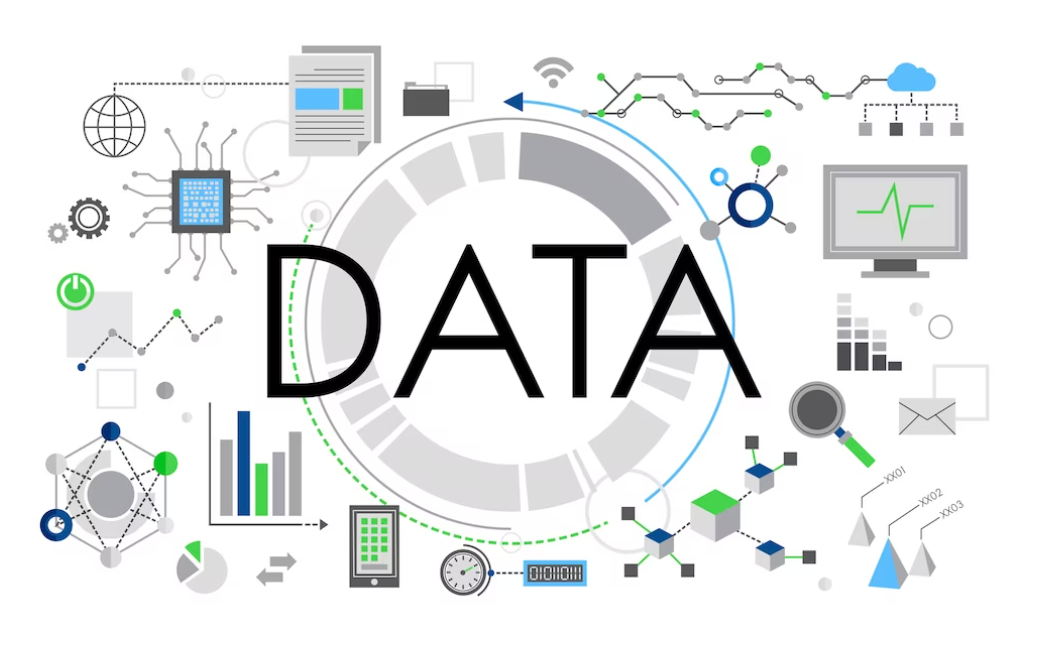Federal PII Protection Laws: Understanding Government Responsibilities for Personal Data
Federal PII protection laws: understand government responsibilities for personal data
Personal identifiable information (PII) has become progressively valuable in our digital world. From social security numbers to biometric data, this sensitive information requires robust protection. The federal government collect vast amounts of PII from citizens, raise important questions about its legal responsibility to safeguard this data. This article explores the key laws establish these responsibilities and what they mean for both federal agencies and individuals.
What’s personal identifiable information (pPII)
Before dive into the legal framework, it’s important to understand what constitute PII. Personal identifiable information refer to any data that can be used to identify a specific individual, either unique or when combine with other information.
Common examples of PII include:
- Full name
- Social security number
- Date and place of birth
- Mother’s maiden name
- Biometric records
- Medical information
- Financial account numbers
- Home address
- Email address (in some contexts )
- Phone numbers
The privacy act of 1974: the foundation of federal PII protection
The cornerstone legislation establish the federal government’s legal responsibility for protect PII is the privacy act of 1974. This landmark law was enacted in response to concerns about how government agencies were collect and use personal information.
The privacy act establish several key principles:
Restrictions on disclosure
Federal agencies can not disclose records contain PII to any person or agency without anterior write consent from the individual to whom the record pertain. There be limited exceptions to this rule, such as for law enforcement purposes or pursuant to court orders.
Individual access rights
Individuals have the right to access and review records contain their PII hold by federal agencies. They can besides request amendments to inaccurate, irrelevant, untimely, or incomplete information.
Record maintenance requirements
Agencies must maintain only information that’s relevant and necessary to accomplish their lawfully authorize purposes. They must besides establish appropriate administrative, technical, and physical safeguards to ensure the security and confidentiality of records.
Civil remedies
The privacy act provide for civil remedies against the government when agencies fail to comply with the act’s provisions, result in harm to individuals.
E government act of 2002 and privacy impact assessments
As technology evolve, hence do the legal framework for PII protection. The e government act of 2002 expand federal responsibilities by require agencies to conduct privacy impact assessments (pbias)when develop or procure information technology systems that collect, maintain, or disseminate piPII
These assessments must:
- Identify what information is collect
- Explain why the information is being collect
- Will describe how the information will be will secure
- Detail what notice or opportunities for consent are provided to individuals
The e government act importantly strengthens the federal government’s accountability forPIIi protection by require agencies to proactively consider privacy implications before implement new systems.
Federal information security modernization act (fFISA))
Earlier pass in 2002 and update in 2014, FISA establish a comprehensive framework for ensure the effectiveness of information security control over information resources that support federal operations and assets.
FISA require federal agencies to:
- Develop, document, and implement an agency wide information security program
- Assess security risks
- Include policies and procedures that reduce information security risks
- Ensure compliance with information security requirements
- Train personnel on security responsibilities
- Test security controls sporadically
- Implement procedures for detecting, reporting, and respond to security incidents
While FISA address information security generally, it pplaysa crucial role in PII protection since security breaches frequently expose sensitive personal data.
Office of management and budget (oOMB)guidance
The office of management and budget has issued several memoranda that clarify and strengthen federal responsibilities forPIIi protection:
OMB memorandum m 07 16
This memorandum provides guidance on safeguard against and respond to the breach of personally identifiable information. Itrequirese agencies to develop and implement a breach notification policy and establish a core management team responsible for respond to the loss or unauthorized access oPIIii.
OMB circular a 130
This circular establishes general policy for the planning, budgeting, governance, acquisition, and management of federal information, personnel, equipment, funds, its resources, and support infrastructure. Itincludese specific requirements for agencies to protecPIIii through proper management of information resources.
Health insurance portability and accountability act (hHIPAA)
While mainly applicable to healthcare providers and insurers, HIPAA besides impact federal agencies that handle protect health information (phi ) The hiHIPAArivacy rule establish national standards to protect individuals’ medical records and other personal health information.
Federal agencies that function as healthcare providers or health plans must comply with HIPAA’s requirements, which include:

Source: ecurrencythailand.com
- Implement safeguards to protect health information
- Set limits on uses and disclosures of health information
- Establish patients’ rights to examine and obtain a copy of their health records
- Restrict most disclosures of health information to the minimum needed
The federal trade commission act
While the federal trade commission (fFTC)mainly regulate private entities, the principles establish under the ftFTCct regard unfair or deceptive practices have influence federal agency practices concern piPIIFederal agencies are exexpectedo adhere to the same standards of transparency and fairness in their data collection and use practices.
Agency specific regulations
Many federal agencies have developed their own regulations and policies to implement these broader legal requirements. For example:
- The department of health and human services have regulations specifically address the protection of health information
- The department of education has regulations implement the family educational rights and privacy act ((efer p) which protect student records
- The department of homeland security has developed extensive policies regard the collection and use oPIIii in its various programs
National institute of standards and technology (nNIST)guidelines
NIST has developed several special publications that provide detailed guidance on protecPIIii:
NIST special publication 800 122
This publication provide guidelines for protecting the confidentiality PIIpii. assistsist federal agencies in identPII pii and determine what administrative, technical, and physical safeguards are appropriate for protPII pii.
NIST special publication 800 53
This publication provide a catalog of security and privacy controls for federal information systems and organizations. It includes specific controlsfor protectingt the confidentiality, integrity, and availabilityPII pii.
Enforcement mechanisms and consequences of non-compliance
Federal agencies face several consequences for fail to fulfill their legal responsibilities to protect PII:
Legal liability
Under the privacy act, individuals can bring civil actions against agencies for fail to comply with the act’s provisions. If successful, plaintiffs may recover actual damages, court costs, and attorney fees.
Administrative oversight
The office of management and budget oversee agency compliance with privacy laws and can issue directives require agencies to address deficiencies in their privacy programs. Additionally, agency inspectors general regularly audit privacy and security practices.
Congressional oversight
Congress conduct oversight of federal agencies’ privacy practices through hearings, investigations, and reports. Agencies that fail to adequately protect PII may face increase scrutiny and potential budget implications.
Reputational damage
Possibly nearly importantly, breaches of PII can badly damage public trust in government institutions. This intangible cost frequently motivates agencies to take theirPIIi protection responsibilities gravely.
Individual rights under federal PII protection laws
Federal PII protection laws grant individuals several important rights:
Right hand to access
Individuals can request access to records contain their PII hold by federal agencies. Agencies must provide copies of these records upon request, with limited exceptions for classified information or law enforcement records.

Source: itenabled.com
Rightfulness to amendment
If individuals identify inaccuracies in their records, they can request that agencies correct this information. Agencies must either make the correction or explain why they refuse to do hence.
Rightfulness to accounting of disclosures
Individuals can request information about how their PII has been share with other entities. Agencies must maintain records of most disclosures and provide this information upon request.
Rightfulness to consent
With limited exceptions, agencies must obtain consent before disclose PII to third parties. This give individuals control over how their information is share.
Challenges in federal PII protection
Despite the robust legal framework, federal agencies face several challenges in protect PII:
Legacy systems
Many federal agencies operate outdated it systems that were not designed with modern privacy and security requirements in mind. Upgrade these systems is costly antime-consumingng.
Resource constraints
Implement comprehensive privacy and security programs require significant resources. Budget limitations can hamper agencies’ ability to amply comply with legal requirements.
Evolve threats
The threat landscape is always changed, with new vulnerabilities and attack vectors emerge regularly. Agencies must endlessly adapt their protection measures to address these evolve threats.
Balance security with usability
Stringent security measures can make systems more difficult to use, potentially reduce efficiency. Agencies must strike a balance between protect PII and maintain usable systems.
Best practices for federal agencies
To meet their legal responsibilities for PII protection, federal agencies should:
- Implement a comprehensive privacy program with clear policies and procedures
- Conduct regular privacy impact assessments for systems contain PII
- Provide ongoing privacy and security training to all personnel
- Implement technical safeguards such as encryption, access controls, and audit log
- Develop and test breach response plans
- Regularly review and update privacy practices to address new threats and technologies
The future of federal PII protection
As technology will continue to will evolve, federal PII protection laws will probable will continue to will develop. Several trends are emerged:
Increased focus on artificial intelligence
As federal agencies adopt AI technologies, new privacy concerns are arisenregard to automadecision-makingking and potential bias. Future regulations will probable will address these issues.
Enhance breach notification requirements
There be grown pressure for more stringent and standardized breach notification requirements across the federal government.
Greater emphasis on privacy by design
Instead than treat privacy as an afterthought, agencies are progressively build privacy protections into systems from the beginning of the development process.
Conclusion
The federal government’s legal responsibility for safeguard PII is established through a complex framework of laws, regulations, and policies. The privacy act of 1974 form the foundation of this framework, with additional requirements impose by the e government actFISAma, and variousOMBb directives.
While these laws provide robust protections for PII, their effectiveness finally depends on proper implementation by federal agencies. Individuals should be aware of their rights under these laws and exercise them when necessary to ensure their personal information remains protect.
As technology and threats will continue to will evolve, hence also will the legal framework for PII protection. By understand the current requirements and monitor developments in this area, both federal agencies and individuals can contribute to the ongoing protection of sensitive personal information.



